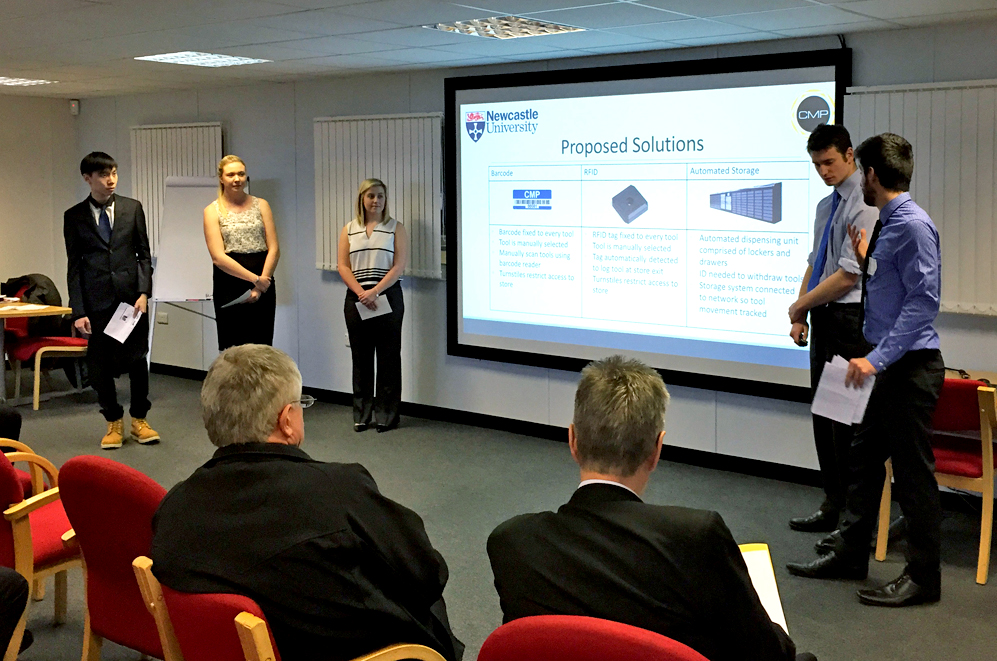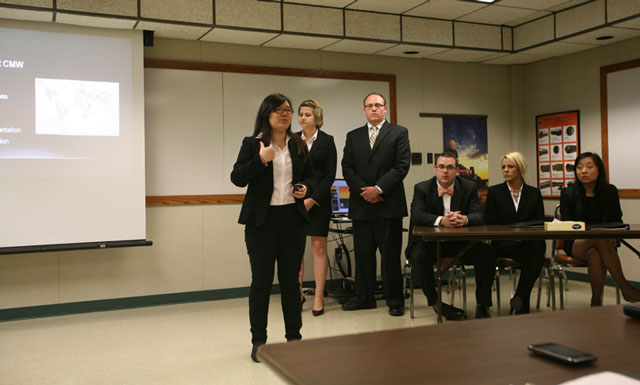Database currently offline due to migration. Working to restore within a few months. Thank you for your patience.
Global Anti-Corruption university project (GAUP)
Students putting ethics, compliance and anti-corruption theory and principles into practice
What is the Global Anti-Corruption University Project (GAUP)?
- The GAUP is a practical applied research project that challenges teams of university students (MBA-JD- EMBA) to assist a Small & Medium size Enterprise (SME) develop the foundation of an ethics and compliance program tailored to the SME risk profile.
- Can be integrated into an existing MBA, EMBA or law course that covers ethics and compliance


How does it work?
- The GAUP curriculum template and guide is integrated into the existing curriculum of a class covering ethics, compliance risk management or governance as a special project.
- OR – Develop an elective class based on the GAUP curriculum template and guide
- An SME is sought and selected to participate in the project
- A senior manager is invited to share the profile of the company, liaise with students and act as a judge to evaluate the student projects.
- Class is divided into teams of students for the entire project
- Guest lecturers with experience in business ethics, compliance and anti-corruption are invited to share knowledge and practical experience on relevant and practical issues.
- Some guest lecturers are also invited to act as mentors and/or judges to evaluate student projects
- Students conduct research and develop the elements of an ethics, compliance and anti- corruption program tailored to the risk profile of the SME.
- Teams of students present the results of their work and their recommendations to a group of judges that act as a simulated board of directors.
Benefits to students
- Providing a practical applied research project in a real-life setting with an SME
- Learning how business ethics, compliance and anti-corruption measures can make a real and practical difference to an organisation
- Putting the theory of ethics and compliance into practice
- Providing a practical experience for students that can be applied with their current and future employer
- Engaging and challenging students to take a leadership role in improving and/or changing the corporate culture
- Proving the knowledge, tools, and practical experience to students to be ambassadors for ethics and compliance


Benefits to universities
- Take a leadership role in promoting ethics, compliance and anti-corruption efforts
- Provide an innovative and creative opportunity to engage and challenge students on ESG issues
- Providing a practical applied research project with wide-reaching benefits and impact
- Promoting students as agents of change or applied research
- Position University as a leader and a bridge between students and businesses
- Building important and practical links with businesses and other stakeholders
- Unique opportunity to increase visibility and commitment to ethics, compliance, anti-corruption and ESG issues.
- Connect with Universities across Canada and around the world to promote exchange.
Benefits to SME
- Obtain very practical and useful recommendations, tools and elements of an ethics and compliance and anti-corruption program tailored to their needs and risk profile.
- Connect and exchange with students and possible future employees
- Gain valuable and practical insights into their current practices that will help them improve or implement their policies and processes and practices.
- Improve their image and reputation as committed and pro-active corporate citizens
- Contribute to their CSR and ESG efforts
- Build relationship with university
- Significant cost savings


Background
The current wave of university students seeking a business or law degree are part of what is referred to as the Z generation. Studies have shown that this generation of future business leaders is highly connected through social media and place great importance on Corporate Social Responsibility (CSR), Ethics, social and Environmental issues (ESG) as well as ethical management. They are also more likely to choose to work for ethical companies and speak out about unethical business practices. As such, the z generation of business students can make an important difference in influencing and changing the business culture that will help reduce and prevent bribery and corruption. To convince these students to become agents of change however, we need not only to inform them but to engage and challenge them.
Currently, the project is part of a Business and Ethics class but it can be easily incorporated as a practical project for students in other business and law classes that cover, risk management, ethics, corruption, governance and compliance issues. Sgt Poitevin (Retd.) provides a 3 hour lecture on bribery and corruption (live or via Skype) to start off the project as well as relevant material and tools from the CCEAC toolbox. The professor and other invited experts (as required) are called upon to provide the rest of the mandated curriculum content as required. Whereas the class curriculum provides and incorporates lectures on business ethics, governance and risk management, students are provided time in each class period to work on their project.
At the end of the semester, each team is required to present their project to a team of judges, including the expert presenter(s) who provide feedback and a grade. This team of judges, which includes a senior manager of the selected SME, act as a fictitious board of director to whom the team of students must present their business case for their version of compliance measures tailored to the risk profile of the SME. These projects count for 60%-70% of the total mark for the course.
